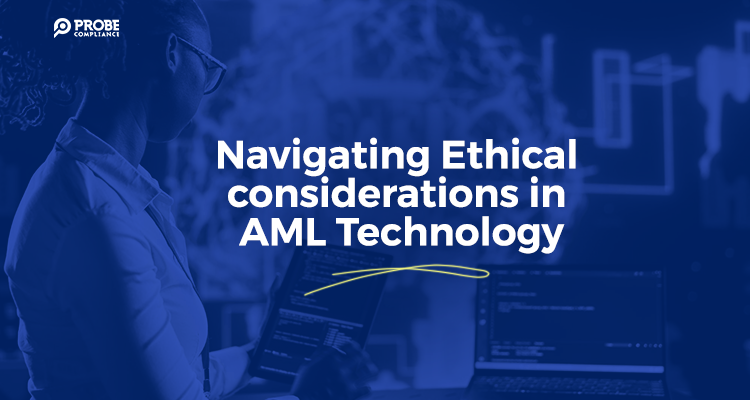
The rapid advancement of Anti-Money Laundering (AML) technologies brings about unprecedented capabilities in combating financial crimes. However, the deployment of such technologies is not without its ethical implications. Striking the right balance between enhancing security measures and preserving individual privacy is a complex challenge that requires careful consideration. This article explores the ethical considerations surrounding AML technology, emphasizing the need for a thoughtful approach that safeguards both financial integrity and individual rights.
- Data Privacy and Consent: A key ethical concern in AML technology revolves around the collection and use of personal and financial data. Striking a balance between effective AML measures and individual privacy requires obtaining informed consent from users. Financial institutions must be transparent about the data they collect, how it will be used, and ensure that individuals have the option to opt out if they choose.
- Proportionality and Necessity: A critical ethical consideration is the principle of proportionality and necessity in deploying AML technology. The measures implemented should be commensurate with the identified risks, avoiding unnecessary invasions of privacy. Striving for a proportional response ensures that the benefits of AML technology outweigh potential infringements on individual rights.
- Bias and Discrimination: AML technologies, particularly those utilizing artificial intelligence and machine learning, may inadvertently introduce biases and reinforce existing societal prejudices. It is crucial to continuously monitor and address any biases in algorithms to prevent discriminatory outcomes. Ethical considerations dictate that AML technologies should be fair and unbiased in their assessments.
- Transparency and Explain-ability: The opacity of AML algorithms raises concerns about transparency and the ability to explain the reasoning behind certain decisions. Ethical AML practices demand transparency in the functioning of these technologies to build trust among users. Individuals should have a clear understanding of how their data is being used and the criteria that trigger alerts for potential money laundering. Read the concluding part of this article later this week.
